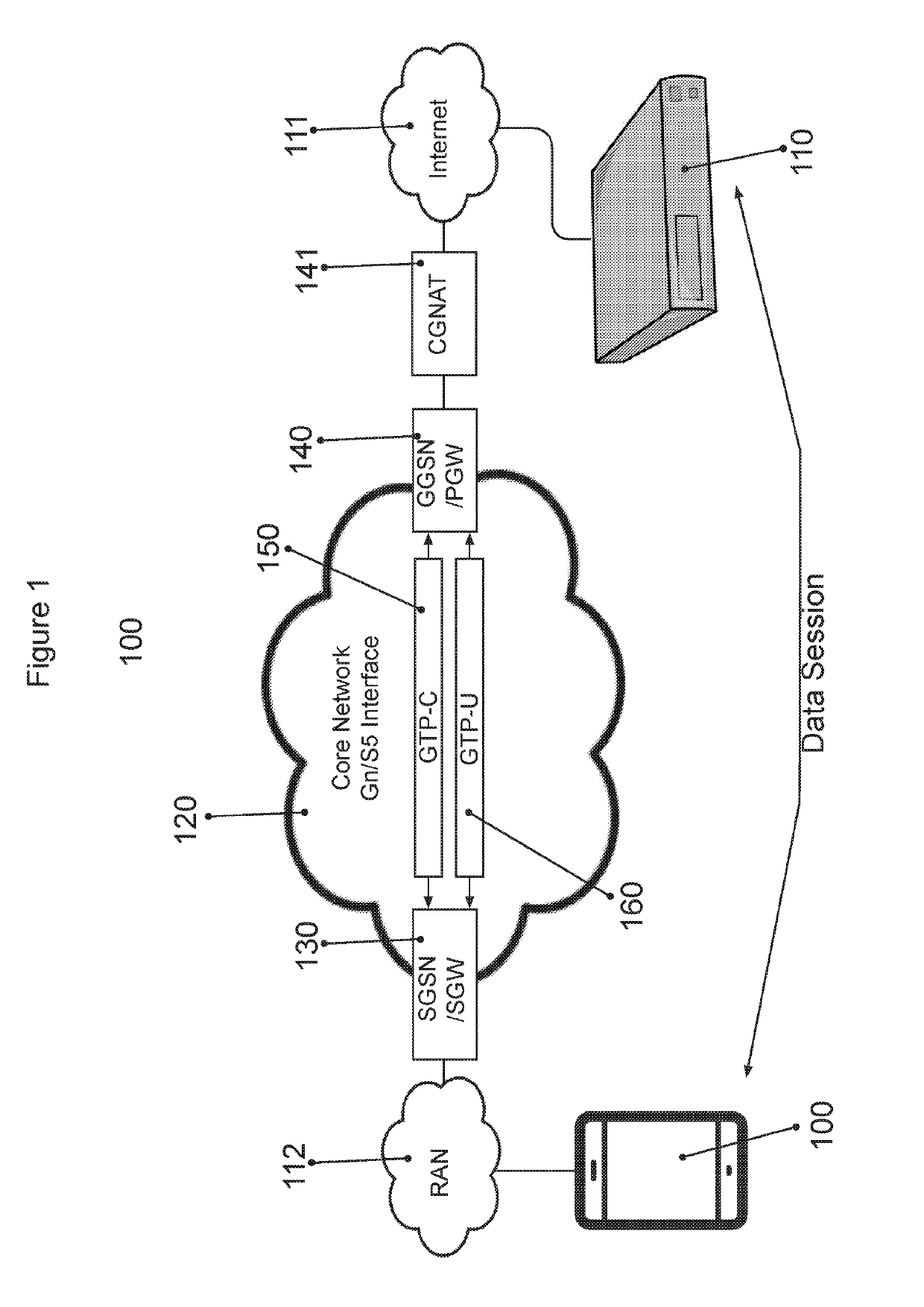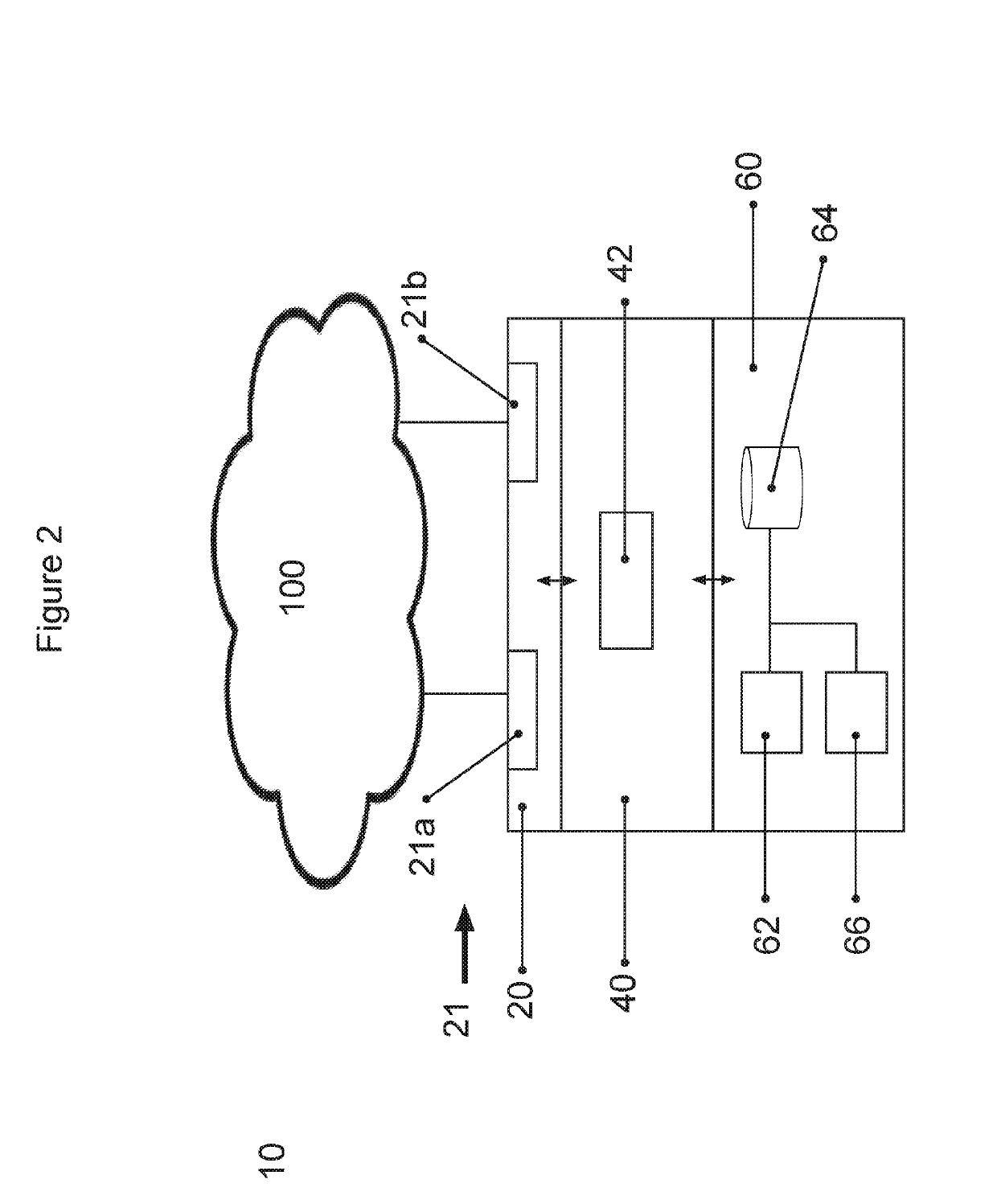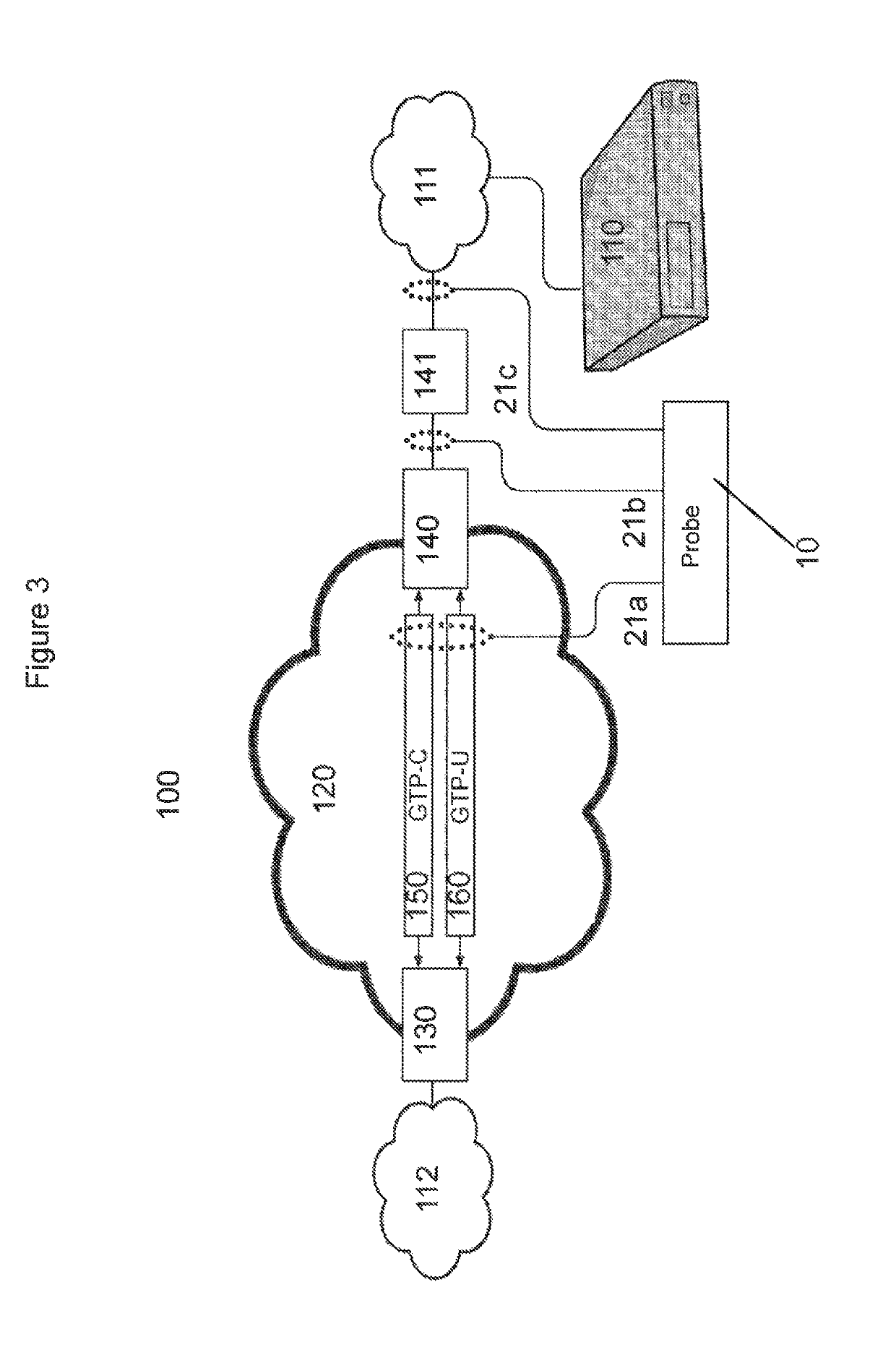Data retention probes and related methods
a data retention and data technology, applied in the field of data retention probes, can solve the problems of inability to initiate actual intercepted communication content and interception, inability to meet the requirements of the current data retention system, so as to reduce the overhead of the processing unit, achieve high speed, and reduce the effect of latency
- Summary
- Abstract
- Description
- Claims
- Application Information
AI Technical Summary
Benefits of technology
Problems solved by technology
Method used
Image
Examples
Embodiment Construction
[0100]The following abbreviations are used in this document
CC—Communications Contents
CD—Communications Data
CGNAT—Carrier Grade Network Address Translation
CN—Core Network
CSP—Communication Service Providers
GGSN—Gateway GPRS support node
GPRS—GSM Packet Radio Service
GSM—Global System for Mobile
GTP-C—GTP Control (Protocol)
GTP-U—GTP User (Protocol)
IMSI—International Mobile Subscriber Identity
IPAR—IP Attribution Record
LTE—Long Term Evolution
PGW—Public data network Gateway
RAN—Radio Access Network
S1AP—S1 Application Protocol
S1-MME—S1 Mobility Management Entity
SCTP—Stream Control Transmission Protocol
SIA—Security and Intelligence Agencies
SGSN—Serving GPRS Support Node
SGW—Serving Gateway
TEID—Tunnel Endpoint Identifier field
UMTS—Universal Mobile Telecommunications System
[0101]FIG. 1 shows a network 100 for communications between a mobile subscriber unit 100, e.g. a mobile phone, and a webserver 110 attached to the global i...
PUM
 Login to View More
Login to View More Abstract
Description
Claims
Application Information
 Login to View More
Login to View More - R&D
- Intellectual Property
- Life Sciences
- Materials
- Tech Scout
- Unparalleled Data Quality
- Higher Quality Content
- 60% Fewer Hallucinations
Browse by: Latest US Patents, China's latest patents, Technical Efficacy Thesaurus, Application Domain, Technology Topic, Popular Technical Reports.
© 2025 PatSnap. All rights reserved.Legal|Privacy policy|Modern Slavery Act Transparency Statement|Sitemap|About US| Contact US: help@patsnap.com



